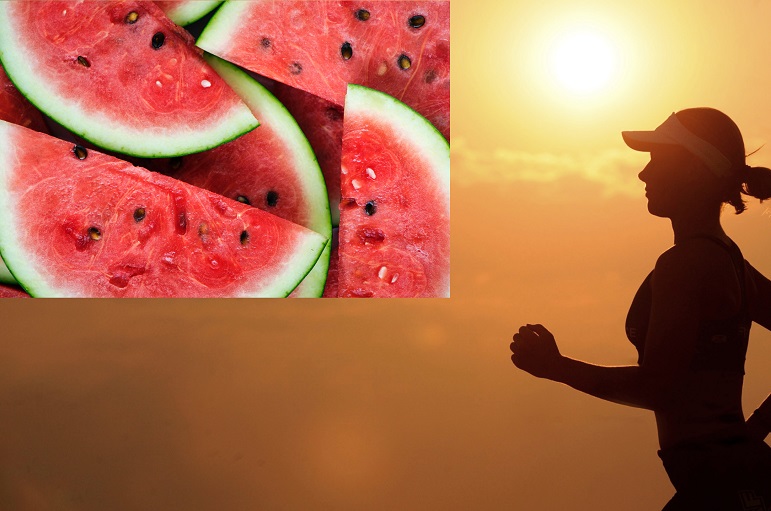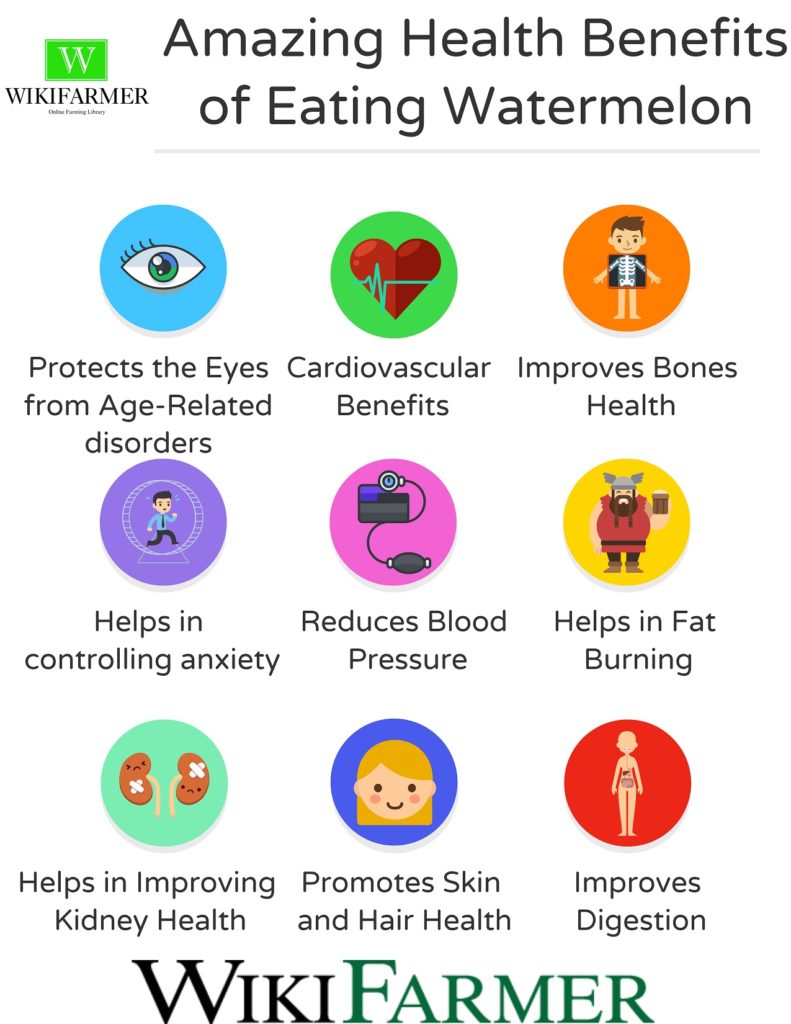12 Amazing Health Benefits of Eating Watermelon

This post is also available in:
This post is also available in:
![]() Español (Spanish)
Español (Spanish) ![]() Français (French)
Français (French) ![]() Deutsch (German)
Deutsch (German) ![]() Nederlands (Dutch)
Nederlands (Dutch) ![]() हिन्दी (Hindi)
हिन्दी (Hindi) ![]() العربية (Arabic)
العربية (Arabic) ![]() Türkçe (Turkish)
Türkçe (Turkish) ![]() 简体中文 (Chinese (Simplified))
简体中文 (Chinese (Simplified)) ![]() Русский (Russian)
Русский (Russian) ![]() Italiano (Italian)
Italiano (Italian) ![]() Ελληνικά (Greek)
Ελληνικά (Greek) ![]() Português (Portuguese (Brazil))
Português (Portuguese (Brazil)) ![]() Indonesia (Indonesian)
Indonesia (Indonesian)
There is a lot of misunderstanding when it comes to the nutrient value of watermelon. Many people wrongly believe that watermelon can only offer sugar and water to the human body. Hence, it is worthless to eat it, as it will only increase our body weight and blood sugar levels.
Of course, this is a myth, mainly prevailing during the previous century. During the 21st century, people have started to perceive watermelon as a highly nutritious food that boosts our immune system.
12 Amazing Health Benefits of Eating Watermelon:
- Cardiovascular Benefits
- Anti Inflammatory Properties
- Watermelon Contains Antioxidants, which fight Cancer
- Improves Bones Health
- Improves Digestion
- Reduces Blood Pressure
- Helps in Fat Burning
- Makes its fair share toward Diabetes Control
- Helps in Improving Kidney Health
- Promotes Skin and Hair Health
- Protects the Eyes from Age-Related disorders (especially the yellow flesh varieties)
- Helps in controlling anxiety
However, watermelons as any other food shall be consumed in normal quantities and as part of a balanced diet.
According to USDA, 100g of raw watermelon contains (among others):
- Water 91,45g
- Energy 30kcal
- Protein 0,61g
- Total lipid (fat) 0,15g
- Carbohydrate 7,55g
- Calcium 7mg
- Magnesium 10mg
- Potassium 112mg
- Vitamin C, total ascorbic acid 8,1mg
- Carotene, beta 303μg
- Vitamin A 569 IU
- Lycopene 4532μg
Carotenoids
Watermelon contains a wide variety of carotenoids such as lutein, zeaxanthin, cryptoxanthin and lycopene. Carotenoids are antioxidants. One of the Antioxidants many roles is to protect cells from free radicals, which are linked with serious diseases, such as cancer and heart diseases.
Lycopene is what causes the red and zeaxanthin is what causes the yellow color at some watermelon flesh. Lycopene has been found to contribute to the good functioning of the heart and may prevent some cancer types, such as prostate and breast cancer. Furthermore, it contributes to intense skin protection from harmful radiation.
Vitamin A
Watermelon contains b-carotenoid, which is transformed into vitamin A. In fact, 100gr of watermelon provides us approximately one-fifth of an adult’s daily vitamin A needs. This vitamin contributes to better eyesight and strengthens the immune system, among other great benefits.
Vitamins of the complex B
Watermelon contains vitamins of the complex B such as B1, B5 and B6. Especially B6 participates in brain neurotransmitters syntheses, such as serotonin, melatonin and dopamine, which are known to help with anxiety and fear regulation.
Vitamin C
Watermelon is a great source of vitamin C, which promotes skin health and boosts our immune system.
Potassium
Watermelon is a great source of Potassium, which has been found to help lowering blood pressure levels.
L-Citrulline
L-Citrulline (contained mostly in the white part of the crust) is an amino acid that converts in L-arginine. L- arginine and L- citrulline, participate in ΝΟ (nitric oxide) synthesis and enhance the blood circulation and urea cycle.
Fiber
Watermelon is a great source of dietary fiber. Dietary fiber boosts the good functioning of the digestive system and control cholesterol levels. However, we shall also refer to watermelons a significant amount of FODMAPs. These are fermentable oligo-, di-, mono-saccharides and polyols and may cause negative effects to people with Irritable Bowel Syndrome.
Carbohydrates
Carbohydrate content in watermelon is close to 7,2g per 100g. From these, 6,2g are sugars like glucose, fructose, and saccharose.
Fat
100g of watermelon contains less than 0.2g of fat.









































































